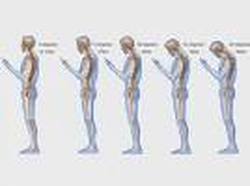
 I think you knew this already, but "bending your head down to look at your phone can have serious consequences for your spine, according to a new study by Kenneth Hansraj, Chief of Spine Surgery at New York Spine Surgery and Rehabilitation Medicine" (Daily Telegraph 24/11/2014). This follows a statement by the United Chiropractic Association earlier this year that "poor posture arising from over use of smart phones posed as big a health risk as obesity". According to Dr Hansraj, the adult head weighs 10-12lb in a neutral position (far left in this diagram); as the head tilts forward, the force on the neck increases, so that at an angle of 60 degrees (far right), the force is equivalent to 60lbs. Unless young people learn to pay attention to maintaining a healthy head-neck-back relationship - which is a key component of the Alexander Technique - they can expect a hi-tech future blighted by pain and injury. One simple change you can make right now is to hold your phone higher.
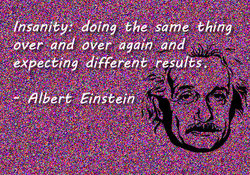 "You cannot change and yet remain the same, though this is what most people want." So said late, great Alexander Technique Teacher Patrick Macdonald (1910-1991). To escape from the tyranny of habit, we need to identify our unconstructive patterns, and then stop doing them. This is exactly the process of personal change that teachers of the Alexander Technique are trained to facilitate.  The Alexander Technique is so rich and multi-faceted that I've always struggled to sum it up in a few words. This morning, while jogging through the woods, I came up with 'Using your thinking to get the best from your body' as a possible one-sentence definition of the Technique. But when I walked back through the front door my eye caught the yellow plastic pack given out to schoolchildren by Tfl and the Mayor of London, to promote road safety. 'Stop. Think. Live.' it said on the cover. As a truly succinct summary of the Alexander Technique, that will do nicely! 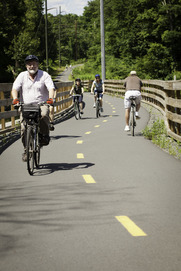 Can cyclists benefit from the Alexander Technique? Yes they can! Yesterday one of my students brought her bike. As she rode up and down Asmuns Hill, we explored how the application of AT principles enables her to have a lighter, easier and more enjoyable experience of cycling. Furthermore, by eliminating harmful habits (such as excessive gripping of the handlebars, pulling the head back, compressing the spine, distorting the alignment of the knees), you protect yourself from pain and injury long-term. My top tips for cyclists include:
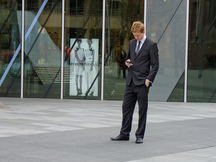 Further to yesterday's posting ('Children aren't moving enough'), it won't be a surprise to learn that adults aren't moving enough either. In fact, according to the World Health Organisation, this country is one of the most inactive countries in the world. On Radio 4's Today programme this morning, Dr Mike Loosemoore advised us to find everyday opportunities to be more active - whether by parking at the far end of the car park, getting out the lift a floor early, or simply by standing up more. He explained that even tiny activities add up to make a big difference, making us more healthy, reducing cholesterol and blood pressure, and helping to reduce the risk of heart disease and diabetes - not to mention making us thinner! I've noticed that desks that can be raised to standing height are becoming increasingly favoured by my Alexander students with a history of back pain; it's good to know that they are gaining other health benefits at the same time. It strikes me that it's not just the quantity of activity that is important, but also the quality. And that, of course, is where the Alexander Technique comes in. 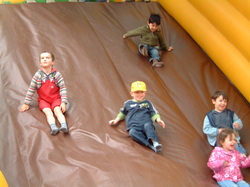 Here's a powerful account of why children fidget in school - and what we can do about it - written by a paediatric occupational therapist: 'The real reason why children fidget' New video highlighting the affect school furniture has on children's backs and general functioning6/5/2014
With an estimated 20% of children already suffering from back pain, health experts are making fresh calls to prevent the use of chairs with backward sloping seats in schools. Check out this short school chair campaign video....
Some years ago an Alexander student of mine with neck/back problems improvised a way of mixing standing and sitting at work - he placed his laptop on an ironing board! There's increasing evidence - both scientific and anecdotal - that constant sitting is harming our health. Click here to read a recent BBC piece on the rise of standing in the office.
 If you're lying in bed in the wee small hours, desperately trying to get to sleep, follow these Alexander tips:
Sweet dreams! A student said to me, "I think the Alexander Technique is great. The trouble is, life takes over and I forget to use it."
Here are a few simple ideas to help you build reminders into your daily life. Every time you..
|
AuthorCarolyn Simon Archives
July 2024
Categories |

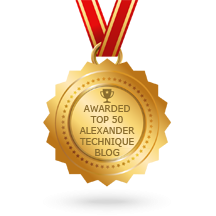
 RSS Feed
RSS Feed
